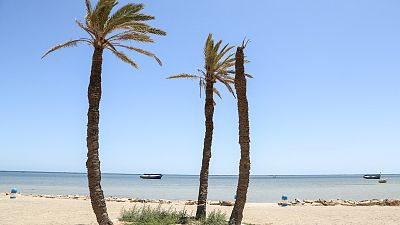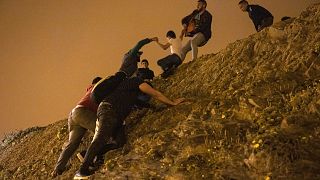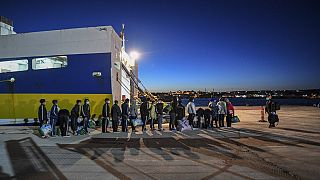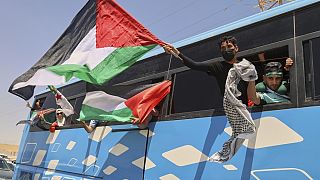Tunisia
Tunisian authorities say more than 50 migrants have drowned off the coast of the North African country, while 33 others were rescued by workers from an oil platform.
Defense Ministry spokesman Mohamed Zekri said Tuesday that a boat carrying the migrants sank Monday off Sfax, on Tunisia’s southeast coast. He said navy units were sent to search the water for missing passengers.
About 90 migrants were said to be on board.
Flavio Di Giacomo, a spokesperson for the Mediterranean coordination office of the International Organization for Migration, said on Twitter that the 33 survivors were all from Bangladesh. The boat departed from Zwara, Libya, on Sunday, he said.
The nationalities of the people who died were not immediately clear.
Tunisia regularly helps migrants who leave neighboring Libya and end up shipwrecked in the central Mediterranean, which is one of the deadliest migration routes according to the United Nations.
On Monday, the Tunisian navy rescued more than 100 migrants, mostly from Bangladesh and Sudan, who were "on the verge of sinking" off the island of Djerba.
At the same time, many boats were intercepted by the Libyan coast guard and brought back to Libya overnight from Sunday to Monday.
The International Organization of Migration said on Monday 680 migrants were intercepted and brought back to Libya.
"Support for search and rescue organizations in Libya must be conditioned on the absence of arbitrary detention and violation of human rights", she added, calling for reconsideration of any support "in the absence of such guarantees. "
The European Union has for several years supported Libya's coastguards, despite the poor conditions in the Libyan detention centers.














00:50
Ons Jabeur retires from Wimbledon Opener due to breathing issues
00:54
Eleven Sudanese migrants dead after crash in Libyan desert
Go to video
New museum in Rotterdam looks at migration through the lens of art
01:08
Senegal’s fishing crisis: Overfishing, migration, survival
02:12
Lampedusa: Honouring the migrants who died at sea
02:03
Libya hosts African volleyball championship